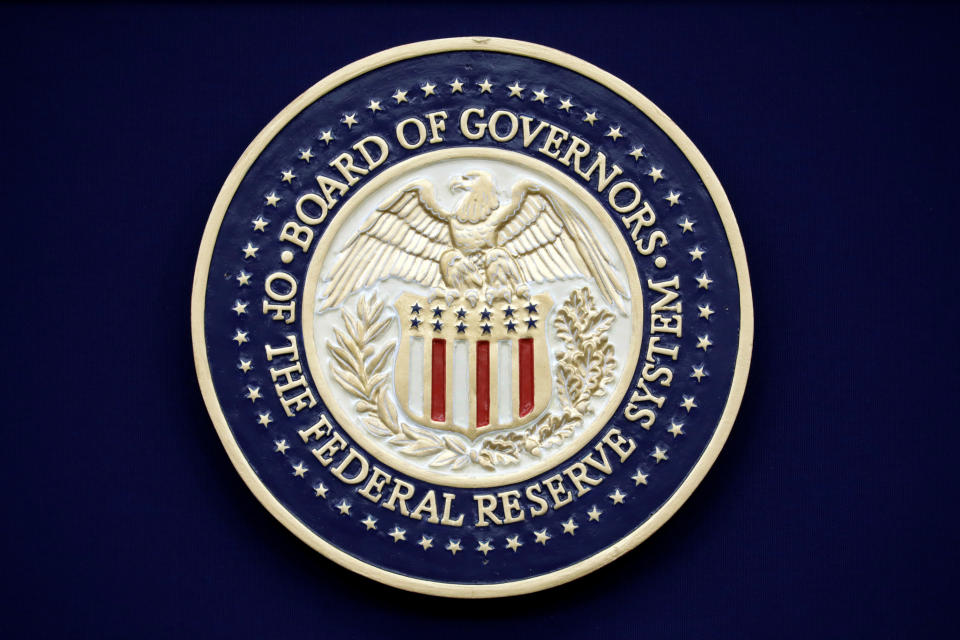Fed to pare back 'Volcker rule' to expand bank investment in venture capital, securitized loans

The Federal Reserve is proposing tweaks to a key post-crisis bank regulation that would allow banks to be more active in risky markets like start-up investments and securitized loans.
The new regulatory proposal would expand the Volcker rule’s exemptions to allow banks to own stakes in or operate venture capital funds and credit funds. The Fed will solicit public comment before it finalizes the rule.
The Volcker rule was part of the Dodd-Frank financial regulatory package enacted into law in 2010. The regulation was named after former Fed Chairman Paul Volcker, who wanted to discourage banks from taking on excessive risk for profit-taking that did not ultimately benefit their customers.
The regulation prohibited U.S. banks from engaging in short-term proprietary trading of securities, derivatives, and commodities. The rule also limited banks from owning “covered funds” that in many cases involve pooled investment vehicles.
Under the proposed changes announced Thursday, the Fed plans on shrinking the “covered funds” that face Volcker rule restrictions. Fed Chairman Jerome Powell said the intent behind the Volcker rule is the “right one,” but said regulators have room to simplify compliance.
“We have learned that a simpler, clearer approach to implementing the rule makes it easier for both banks and regulators to carry out the intent of the rule,” Powell said Thursday. “We have already taken several steps in that direction and the proposal before us continues that work.”
Venture capital and CLOs
The regulatory change would allow banks to acquire or retain ownership interests in venture capital funds, or pools of investment for small businesses and start-ups. Under the existing rule, banks could invest in businesses but faced restrictions on directly owning a venture capital fund that invests in businesses.
The rule change would also give banks more leeway to invest or sponsor credit funds that make loans, invest in debt securities, or extend credit. One implication of this rule change would be greater bank activity in the market for collateralized loan obligations (CLO), where banks were previously barred from involving themselves with CLO funds that included a debt component.
The proposed change would allow banks to have direct ties to “qualifying” credit funds that have loans, debt instruments, and even some interest rate or foreign exchange derivatives.
The Fed says banks will still be barred from any funds that do proprietary trading and will face restrictions on when it can bail out failing funds. Fed staff also reiterated that capital requirements will still fully apply to banks and that risk retention rules in the original rule are still in place.
Brainard dissents

The changes were not universally embraced by those within the Fed. Governor Lael Brainard, an Obama-era appointee who has dissented on other regulatory changes in previous years, voted against the proposal.
“I am concerned that several of the proposed changes will weaken core protections in the Volcker rule and enable banking firms again to engage in high-risk activities related to covered funds,” Brainard said.
Randal Quarles, who was appointed by the Trump administration to be the Fed’s vice chairman of supervision, has been heading the efforts to pare back post-crisis regulations.
“[I]t is inescapable that compliance and enforcement have been difficult and can be simplified for both banking entities and regulators,” Quarles said Thursday.
Since the Volcker rule’s inception, regulators have wrestled with the private industry and with one another. Implementing the rule turned out to be a challenge; even though it was signed into law in 2010, it took five years to finalize and apply the regulations.
Revisions were already proposed by regulators in the middle of last year aimed at reducing compliance burden, which Compass Point’s Isaac Boltansky described as “directional positive for the banking industry.”
“[T}he forthcoming ‘covered funds’ warrants watching as it could ultimately impact investment flows and capital formation,” Boltansky wrote Jan. 27.
Brian Cheung is a reporter covering the banking industry and the intersection of finance and policy for Yahoo Finance. You can follow him on Twitter @bcheungz.
Powell: 'Hard to say' if balance sheet expansion is affecting risk assets
Fed Chair Powell: Coronavirus will affect Chinese economy 'in the short term'
Fed holds rates steady in first meeting of 2020 as economy extends expansion
Fed to start 2020 with heavy scrutiny on the meaning of 'liquidity'
'This is the new normal': California businesses pessimistic on phase 2 deal
Read the latest financial and business news from Yahoo Finance
Follow Yahoo Finance on Twitter, Facebook, Instagram, Flipboard, SmartNews, LinkedIn, YouTube, and reddit.
